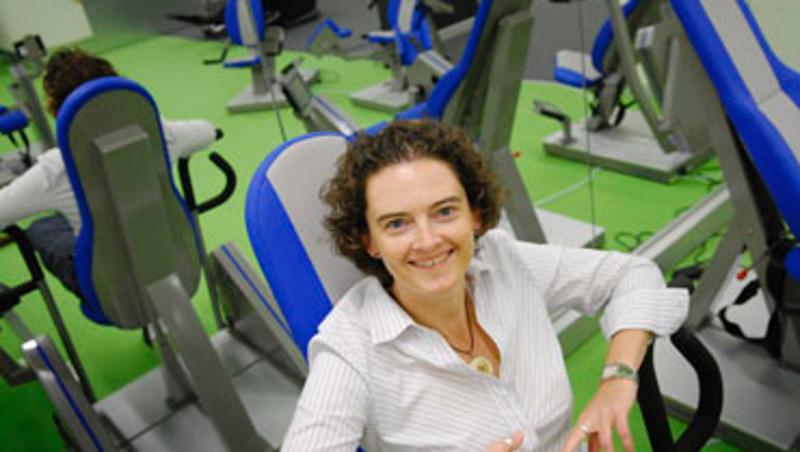
Stop! Do your maths before putting that Christmas mince pie in your mouth:
- one mince pie = 360 calories
- a 75kg woman uses 58 calories to walk 1km at her self-selected "walking for exercise pace"
- therefore, to burn one mince pie, a 75kg woman has to walk 6.2km
The figures are based on the unappetising fact that to burn 1kg of fat a healthy weight woman of 62kg would have to walk for 24.3 hours. This data were revealed in an National Health and Medical Research Council (NHMRC)-funded study by QUT exercise scientists of the energy used by Australian men and women of different body weights when "walking for pleasure".
Associate Professor Nuala Byrne from QUT's Institute of Health and Biomedical Innovation (IHBI) said the results of the study would come in handy for doing a cost/benefit analysis of your next helping of Christmas cheer.
"While we may want to say 'Bah! Humbug!' to such information at this time of year, it is important to remember that we can consume a lot of energy with very little effort, and this energy then takes a lot of time and exercise to get rid of - in other words, a walk to the corner shops does not equal a Mars bar," Professor Byrne said.
"This help explains the "coffee break effect" of no weight loss despite exercise - people go for a walk and reward themselves at the end with coffee and cake - the coffee's fine but in weight-management terms the cake undoes the benefits of the walk and then some."
Professor Byrne said the study of 240 adults involved three groups of men and women who were in a healthy, overweight or obese weight range.
"We got them to walk 2km around a marked track at a pace they considered was 'walking for pleasure'. It wasn't the fastest speed they could walk but the speed they chose to walk. We then measured the energy they used at this walking speed in the laboratory," she said.
"The National Physical Activity Guidelines for adults in Australia recommend at least 30 minutes of moderate-intensity physical activity (including brisk walking) on most days of the week.
"Unfortunately this advice is not enough to prevent obesity so if you over-indulge at Christmas you will have to walk for longer and at a quicker pace to get rid of the extra energy you have eaten.
"Basically we need to aim to expend 2000 calories or six to seven hours of exercise per week in addition to our usual daily activities to achieve effective weight-loss."
Professor Byrne said the data helped demonstrate people should not expect marked weight loss in a short time.
"People commonly expect to lose weight at a much faster rate than it was gained, and this can cause metabolic and physiological compensations that counteract the weight-loss," she said.
With colleagues in the Energy Metabolism Group, Professor Byrne is conducting another NHMRC study to investigate the compensatory responses that accompany weight-loss interventions. Anyone interested in the MATADOR (Minimising Adaptive Thermogenesis And Deactivating Obesity Rebound) study should contact n.byrne@qut.edu.au for further details.
Media contact: Niki Widdowson, QUT media officer, 07 3138 1841 or n.widdowson@qut.edu.au.
** HIgh res photo of Professor Byrne available for media use.


